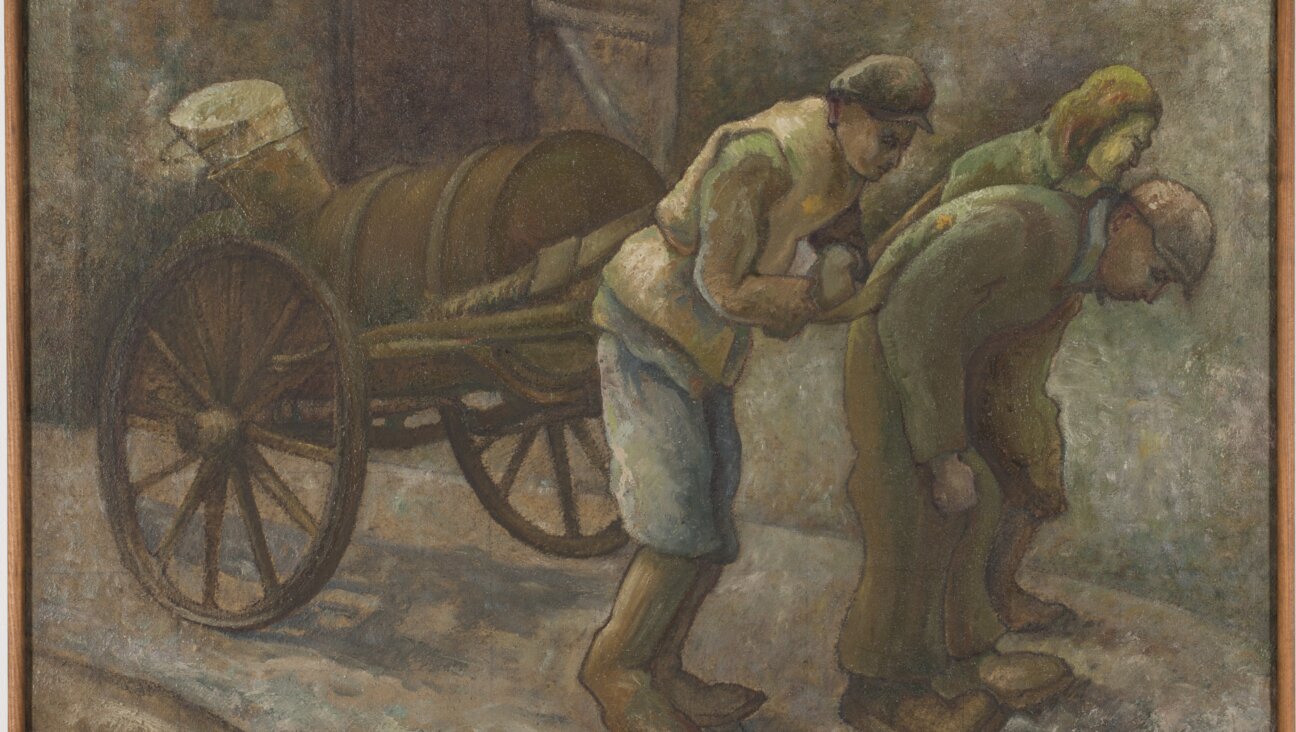How A Yiddish Program In Paris Is Invigorating Research In Israel And The U.S.

Image by Bibliothèque Medem
This article originally appeared in the Yiddish Forverts.
A unique Yiddish immersion program in Paris has begun its second semester. Its students, graduate students and postgraduates, praise it wholeheartedly.
At the new Paris Yiddish Center’s program for intermediate and advanced students, each participant receives 15 hours of instruction in language and literature each week. They conduct their own research projects with the aid of a personal advisor and, even more importantly, with access to the Bibliothèque Medem, the largest Yiddish library in Europe.
The students recently expressed enthusiasm about the fact that the course allows them to conduct research in a Yiddish-speaking institution while receiving 30 university credits from the French university system.
Dr. Henry Szor, one of the participants, is an Israeli psychoanalyst who sometimes works with Holocaust survivors.
“The program allows us to link our own research project with a broader immersion in the Yiddish language and literature. And in Paris to boot,” said Szor, who is researching Vilna poet Abraham Sutzkever’s Holocaust poetry. “I work together with my academic advisor, Dr. Yitskhok Niborski, on a weekly basis. During each meeting it feels like — as Sutzkever once wrote — a poem is ‘born anew.’”
Szor attends all of the courses available for advanced students at the Paris Yiddish Center. “I participate in the monthly Sunday literary seminars and twice a year there are special seminars with leading researchers from around the world. There isn’t a week that goes by without several types of cultural events,” he said.
The students who enroll in the program have an opportunity to improve their written and spoken Yiddish, expand their knowledge of Yiddish literature and culture and meet esteemed researchers as well as native Yiddish speakers. Students can participate in a range of projects, helping organize cultural events or working for the Yidisher Tam Tam, a publication for students and teachers.
Ri. J. Turner, an American graduate student and translator, praised the multidimensional nature of studying at the Bibliothèque Medem:
“The program is a dream come true for me because it’s a graduate-fellowship program in Yiddish in the best sense of the term,” Turner said. “I’ve brought several translation and research projects with me and I find myself among colleagues and professors who understand their importance. (As we know, this isn’t always the case in a university setting.)”
Although the spring semester began on January 29, the Center is still accepting applications for the semester, which runs until June 21. Dates can be adjusted as needed to match the student’s university schedule.
More information can be found here.
A message from our Publisher & CEO Rachel Fishman Feddersen

I hope you appreciated this article. Before you go, I’d like to ask you to please support the Forward’s award-winning, nonprofit journalism during this critical time.
At a time when other newsrooms are closing or cutting back, the Forward has removed its paywall and invested additional resources to report on the ground from Israel and around the U.S. on the impact of the war, rising antisemitism and polarized discourse.
Readers like you make it all possible. Support our work by becoming a Forward Member and connect with our journalism and your community.
— Rachel Fishman Feddersen, Publisher and CEO























